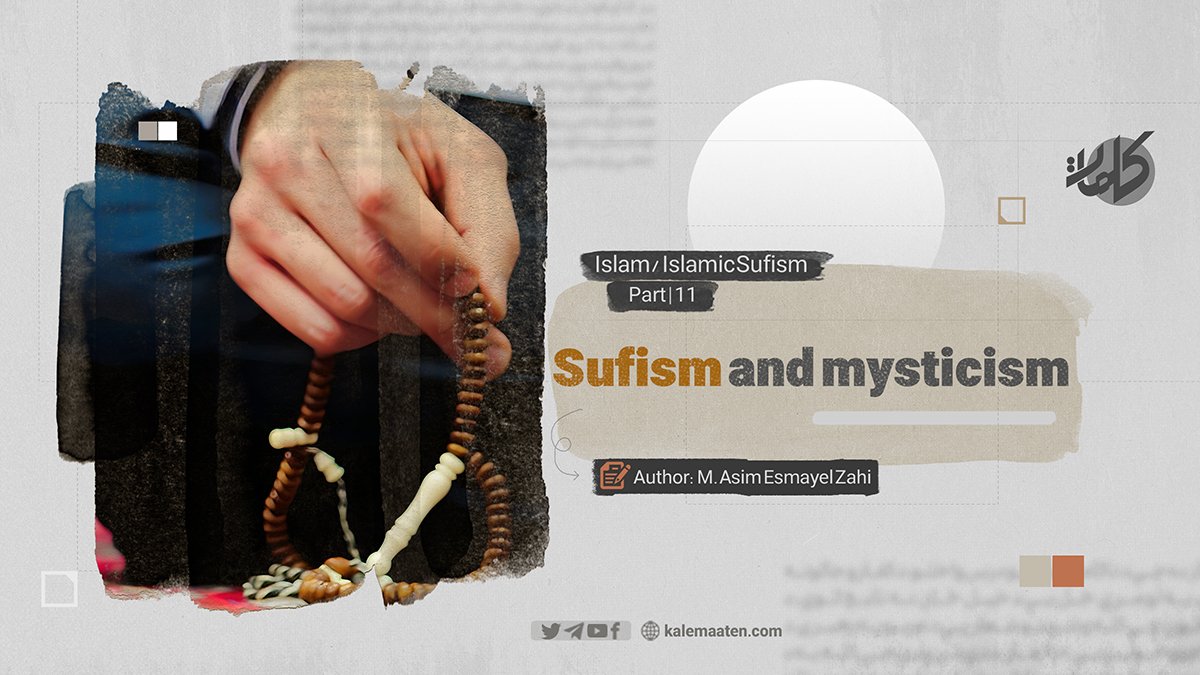Author: M. Asim Esmayel Zahi
Sufism and Mysticism (The 11th and Final Part)
The Ranks of Mystics and Sufis from the 2nd to the 10th Century AH
9th Century
1. Shah Nematullah Wali: The Nematollahi Order, one of the most renowned Sufi orders today, traces its origins back to him. His blessed shrine in Mahan, Kerman, is a pilgrimage site for Sufis. It is said that he lived 95 years and passed away in one of the years 820, 827, or 834 AH. Most of his life was spent in the 8th century, and he is known to have met Hafez Shirazi.
2. Muhammad bin Hamza Fanari Rumi: He was a scholar from the Ottoman Empire and authored numerous books, gaining fame for his work Misbah al-Uns, a commentary on Miftah al-Ghaib by Sadr al-Din Qunawi. Writing commentaries on the works of Muhyiddin Ibn Arabi or Sadr al-Din Qunawi is no ordinary task, yet Fanari accomplished it. Later researchers in mysticism have affirmed the value of his commentary.
3. Shams al-Din Muhammad Lahiji Nurbakhshi: He was the commentator of the book Gulshan-e-Raz by Mahmoud Shabestari. A contemporary of Mir Sadr al-Din Dashtaki and Allama Dawani, he lived in Shiraz. According to what Qazi Nurullah wrote in Majalis al-Mu’minin, both Sadr al-Din Dashtaki and Allama Dawani, prominent philosophers of their era, held him in high regard. Lahiji was a student of Seyyed Muhammad Nurbakhsh, who himself was a student of Ibn Fahd Hilli, mentioned in the history of Islamic jurists. Lahiji is best known for his Commentary on Gulshan-e-Raz, regarded as one of the finest mystical texts. In the preface of his book, he states that he began the commentary in the year 877 AH. The exact date of his death is unclear, but it seems he passed away before the year 900 AH.
4. Nur al-Din Abd al-Rahman Jami: He was of Arab descent, tracing his lineage back to Hasan Shaybani, a renowned jurist of the 2nd century AH. Jami was a skilled poet and is considered the last great mystical poet of the Persian language. Initially known by the pen name “Dashti,” he later changed it to “Jami,” as he was born in the district of Jam. Jami pursued advanced studies in various fields, including grammar, morphology, jurisprudence, principles of Islamic law, logic, philosophy, and mysticism. He passed away in 898 AH at the age of 81.
This was a summary of the history of mysticism from its beginnings to the end of the 9th century.
References
1. Tafsir Mazhari 3/382.
2. Allah is the light of the heavens and the earth (Surah An-Nur: 35).
3. He is the First and the Last (Surah Al-Hadid: 3).
4. There is no God but Allah (Surah Al-Baqarah: 163).
5. And the swelling of my soul (Surah Al-Hajr: 29).
6. We have created the human being, and our knowledge is based on his own soul. We are the closest to him, the rope of Al-Warid (Q. 16).
7. “Fainma Toluwa Fathom Wajallah” (Surah Al-Baqarah: 115).
8. I did not make Allah light for me, but for me, there is light (Surah An-Nur: 40).
9. The Heritage of Islam, a collection of orientalist articles about Islam, p. 84.
10. The translation of this Hadith Qudsi: “On the authority of Abi Hurairah, who said: The Messenger of Allah, may Allah bless him and grant him peace, said: ‘Indeed, Allah said: I am normal to him, but he has lost his authority in war, and he does not draw near to a slave with something more dear than what is prescribed for him. So I loved him: I was the hearing of the one who hears, the sight of the one who sees, the vision of the one who compares it, and the rod of the one who walks. And if you ask me for forgiveness, and if I ask you for forgiveness, and if you do not turn away from something, then you do not turn away from the soul of the believer, I hate death, and I hate punishment'” (Sahih Bukhari, 2/5602).
11. History of Sufism in Islam, authored by Dr. Qasim Ghani, page 19.
12. Tazkira Al-Awlia of Sheikh Attar.
13. Al-Lama, p. 427.
14. Dr. Ghani, History of Sufism in Islam.
15. The Heritage of Islam, p. 85.
16. History of Sufism in Islam, p. 462, quoted from the book of states and words of Abu Sa’id Abu al-Khair.
17. History of Sufism in Islam, p. 55.
18. Tabaqat al-Sufiyyah, Abu Abd al-Rahman Salmi, p. 206.



